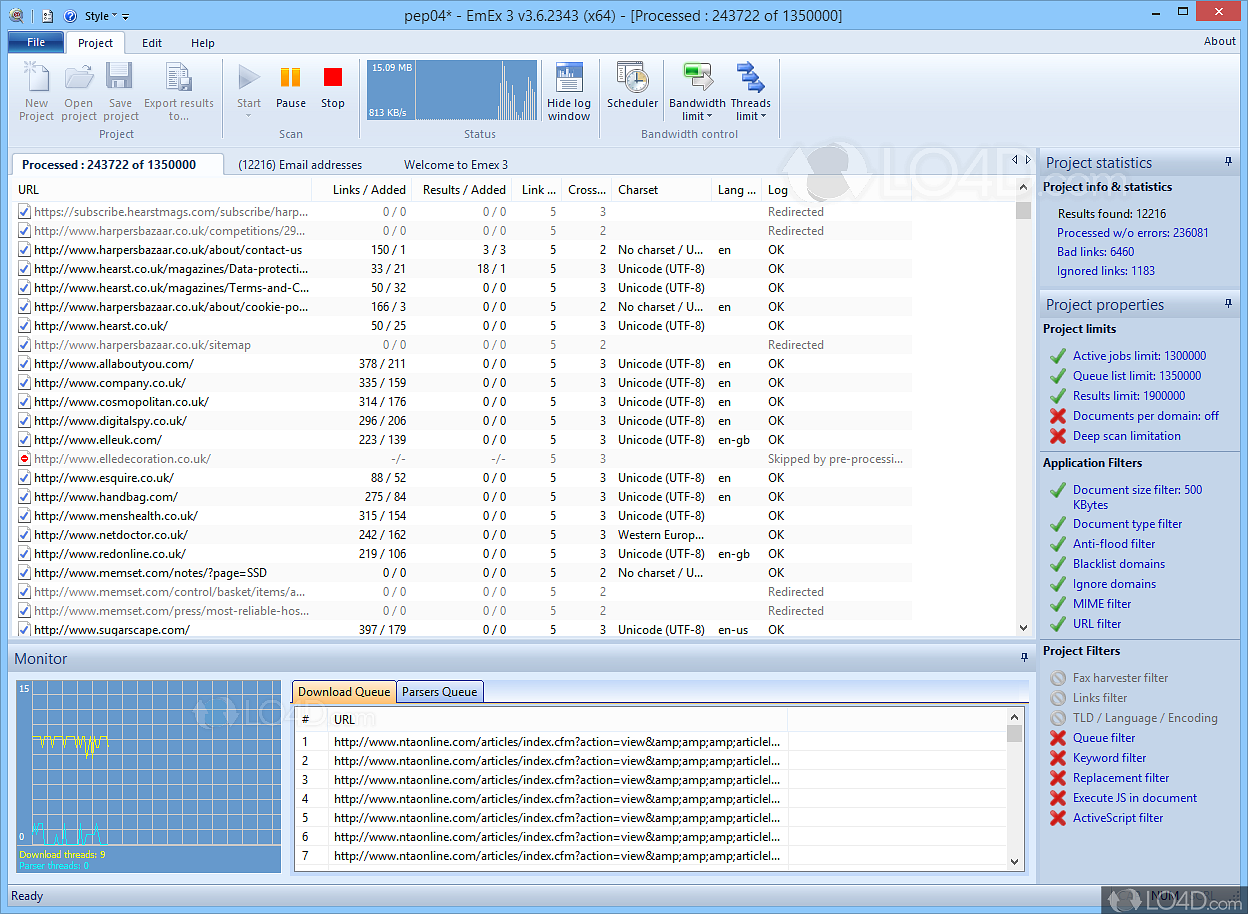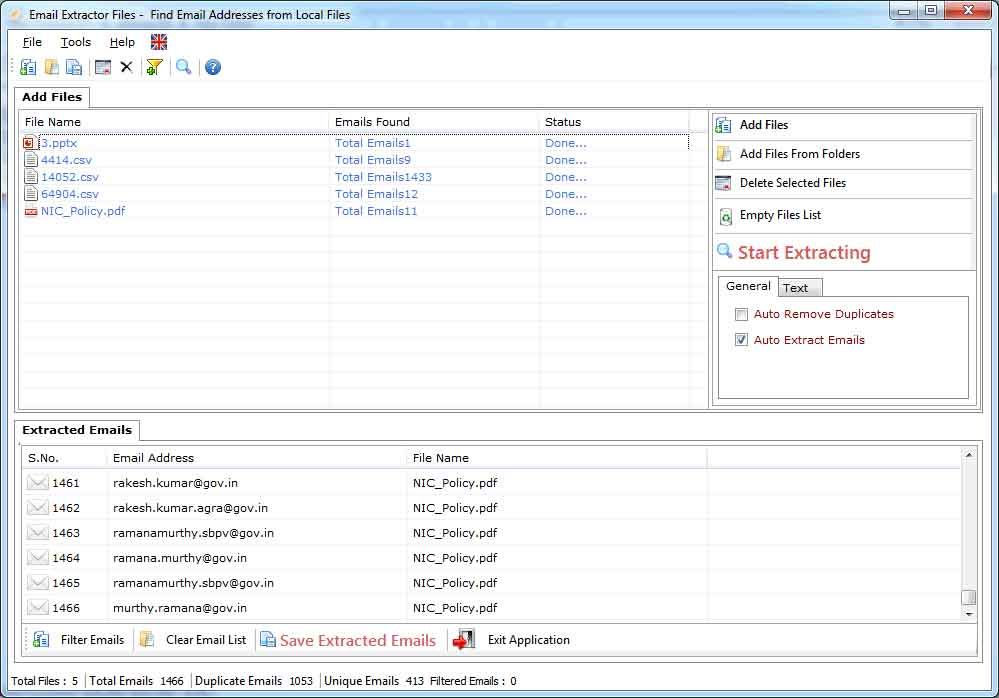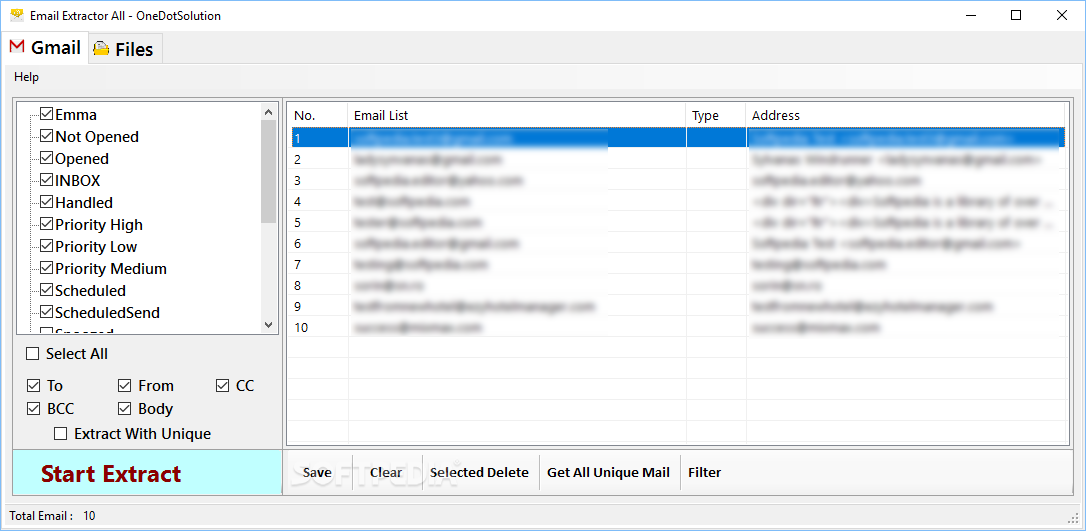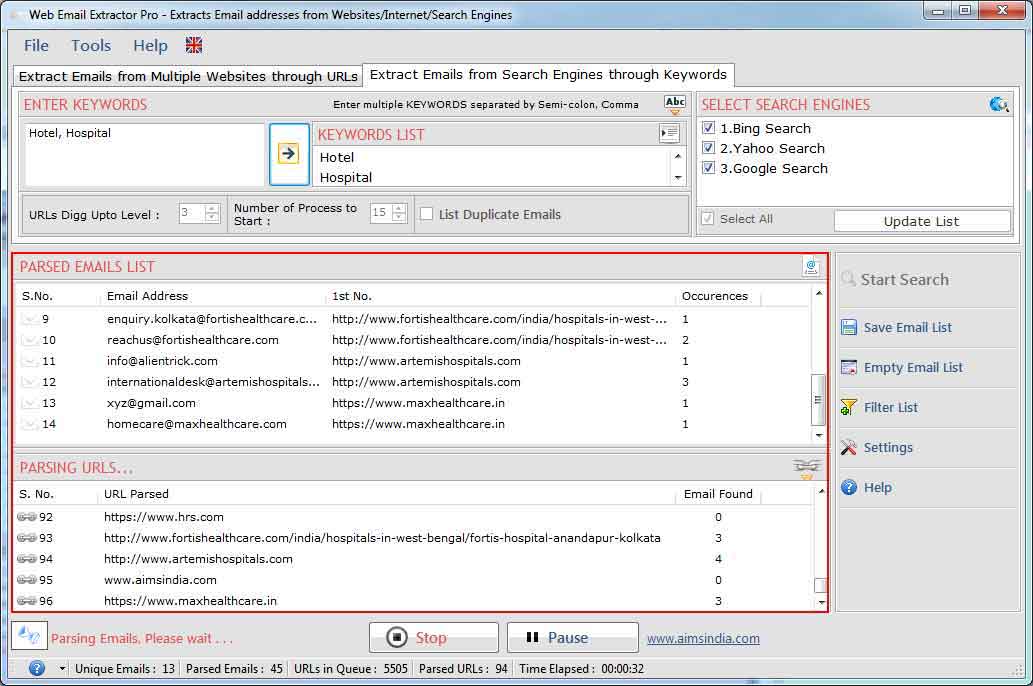

Streamlined metadata user interface in 6.2 as in 7.Įnhanced autonomous extraction with PHP (docx, xlsx, pdf, jpg. Use of EXT:metadata is however discouraged (and useless anyway).

Takes EXT:media changes to TCA into account. Loads of additional file types analysed in native PHP.
#Email extractor 1.7 pdf#
Handy tool to configure your own mapping configuration.įix "auto_extract" configuration in TYPO3 6.2.Įxtraction could fail to be triggered in TYPO3 7.īetter handling of PDF metadata using native PHP extraction. Map IPTC categories to TYPO3 system categories. TYPO3 logger lets you follow the metadata extraction process. Map IPTC categories to TYPO3 system categories with PHP native extraction. Now with enhanced support for OPCache when not using composer, fixed support for encrypted PDF and last but not least, a better icon since this extension is about extracting and analyzing metadata and not "searching" for files. Long-awaited release with support for TYPO3 v8, TYPO3 v9 and TYPO3 v10 so that it eases your migration path between LTS versions. In addition a bug has been fixed where some PDF whose metadata where encoded as UTF-16BE in octal representation would lead to extracted title and other fields like "\376\377\000D\000o\000c." which is absolutely useless!įinally a deprecated call was still present in TYPO3 v8 and is now migrated. So for v8 users and as long it is not fixed in Core, this extension will simply "refuse" to extract metadata if they are already present in file. Problem is reported but is not yet fixed and will not be fixed for TYPO3 v8 anyway (possibly with ELTS plan? Even not sure). This release mitigates a design flaw for TYPO3 FAL present since TYPO3 6.2 LTS: when moving a file in fileadmin, FAL reindexes it afterwards, extracts again the metadata from physical file and replaces them in database, thus effectively leading to loss of information if a user manually edited the metadata. This was related to a workaround we implemented to work around a design flaw in FAL which is re-extracting metadata when moving files around.īug fix release for a compatibility issue in TYPO3 v8 and v9.

For some users the extraction service would not be properly executed when uploading a file. Check documentation (Developer Manual) if needed. BEWARE: Signal/Slot after metadata extraction has vanished and is now an PSR-14 event in TYPO3 v10. If you think this or any other cybersecurity threat has impacted your organization, contact our Global FortiGuard Incident Response Team.Feature release allowing to dynamically assign TYPO3 categories to the corresponding file when using signal/slog or event/listener scheme. The FortiGuard Web Filtering Service blocks the malicious URL and IP address. Customers running current AntiVirus updates are protected. The FortiGuard AntiVirus service is supported by FortiGate, FortiMail, FortiClient, and FortiEDR, and the Fortinet AntiVirus engine is a part of each of those solutions. The malware described in this report are detected and blocked by FortiGuard Antivirus as: This article will examine the initial attack method used to deliver EvilExtractor and its functions. The developer released its project in October 2022 (Figure 1) and has kept updating it to increase its stability and strengthen its module. We recently reviewed a version of the malware that was injected into a victim’s system and, as part of that analysis, identified that most of its victims are located in Europe and America.

Its primary purpose seems to be to steal browser data and information from compromised endpoints and then upload it to the attacker’s FTP server. It also contains environment checking and Anti-VM functions. It usually pretends to be a legitimate file, such as an Adobe PDF or Dropbox file, but once loaded, it begins to leverage PowerShell malicious activities. FortiGuard Labs observed this malware in a phishing email campaign on 30 March, which we traced back to the samples included in this blog. However, research conducted by FortiGuard Labs shows cybercriminals are actively using it as an info stealer.īased on our traffic source data to the host, evilextractorcom, malicious activity increased significantly in March 2023. It was developed by a company named Kodex, which claims it is an educational tool. It includes several modules that all work via an FTP service.
#Email extractor 1.7 windows#
Impact: Controls victim’s device and collects sensitive informationĮvilExtractor (sometimes spelled Evil Extractor) is an attack tool designed to target Windows operating systems and extract data and files from endpoint devices.


 0 kommentar(er)
0 kommentar(er)
